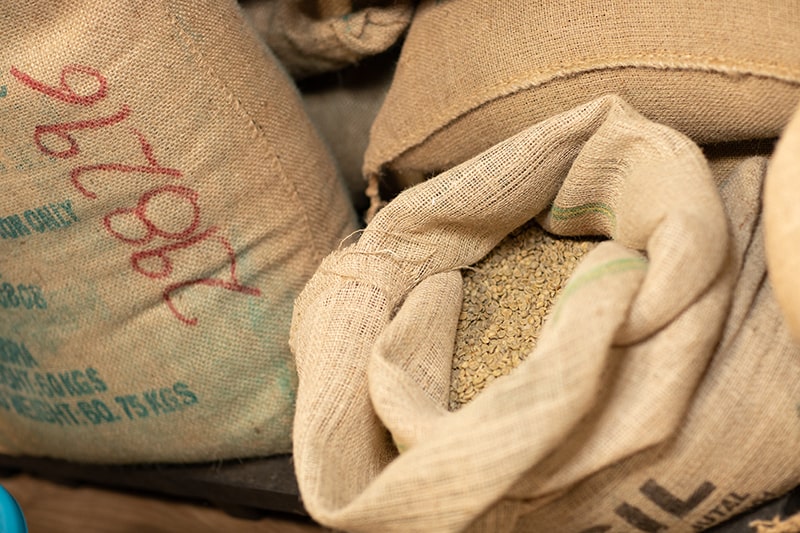Coffee is not just a beverage; it is an experience, a ritual, and sometimes, an art form. When it comes to coffee, two terms that often pop up are “single origin coffee” and “coffee blends.” Understanding the difference between these two types of coffee can greatly enhance your coffee journey. In this blog post, we will explore what single origin coffee is, how it differs from coffee blends, and the significant impacts these choices can have on your taste experience.
What is Single Origin Coffee?
Single origin coffee refers to coffee that is sourced from one specific location. This could be a single farm, a cooperative of farmers from a specific region, or even a country itself. For instance, coffee labeled as ‘Ethiopian Yirgacheffe’ is sourced solely from the Yirgacheffe region of Ethiopia. Try some of our Union Place Coffee Roasters Ethiopian Yirgacheffe for yourself! https://unionplacecoffeeroasters.com/product/ethiopian-yirgacheffe-coffee/
One of the richest qualities of single origin coffee is the unique flavor profile that originates from its geographical location. Factors like altitude, climate, soil composition, and local cultivation practices all contribute to the taste. For coffee enthusiasts, these distinct flavors offer a window into the culture and environment of the region where the coffee was grown.
The roasting process for single origin coffee is also often tailored to highlight its unique characteristics. Roasters might choose lighter roasts to preserve the fruity and floral notes typical of certain single origin coffees. This attention to detail can lead to a full-flavored, nuanced cup of coffee.
Understanding Coffee Blends
Unlike single origin coffee, coffee blends consist of beans sourced from multiple locations, farms, or even different types of coffee altogether. The goal of blending is to create a balanced flavor profile that combines various aspects of different coffees. For example, a roaster might blend beans from Latin America, Africa, and Indonesia to achieve a complex taste that appeals to a wider audience.
Coffee blends can cater to specific palates by balancing acidity, body, and flavor notes. They are often crafted to ensure consistency across batches, which is an important aspect for commercial coffee brands. Many well-known brands create signature blends that consumers have come to recognize and love.
The art of blending coffee is much akin to winemaking; it involves an understanding of flavor profiles and how they interact with each other. As such, a well-executed blend can result in a harmonious cup, yet it may lack the distinctive qualities associated with single origin offerings.
Taste Differences: Single Origin vs. Blends
When it comes to flavor, the differences between single origin coffee and coffee blends are striking. Single origin coffee often carries pronounced, specific flavor notes that can vary significantly based on the origin. You may encounter fruity, floral, nutty, or chocolatey notes, depending on the coffee’s source.
Coffee blends (https://unionplacecoffeeroasters.com/coffee-blends/) are typically designed to create a more balanced and rounded flavor experience. As a result, they might taste less complex than single origin coffees but are oftentimes perceived as more approachable due to their mildness. Coffee blends suit various preferences, making them an excellent choice for casual drinkers or those who prefer a consistent flavor profile.
Which One Should You Choose?
Choosing between single origin coffee and coffee blends ultimately comes down to personal preference. If you are a coffee aficionado eager to explore various flavors unique to specific regions, single origin coffee may be your best choice. The exploration can turn every cup into a new adventure, and it allows you to appreciate the craftsmanship involved in each coffee’s production.
If you prefer a consistent flavor or are simply looking for a reliable cup to enjoy daily, coffee blends might be your ideal choice. They often provide a smoother and more balanced experience, making them a staple in many households.
Final Thoughts
Both single origin coffee and coffee blends offer unique advantages and experiences for coffee drinkers. Single origin coffee highlights the rich diversity of flavors available from different regions, making it a valuable choice for those seeking to broaden their coffee palate. Coffee blends provide consistency and balance that many consumers appreciate. Understanding the difference between these two types of coffee will not only elevate your coffee-drinking experience, but also deepen your appreciation for this beloved beverage. So, stop in at Union Place Coffee Roasters and try our single origin and blend (https://unionplacecoffeeroasters.com/coffee-blends/) options carefully—your perfect cup is waiting!


Customer Reviews